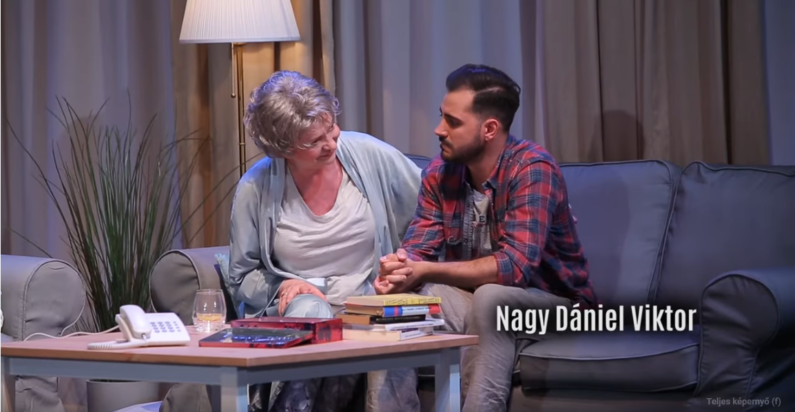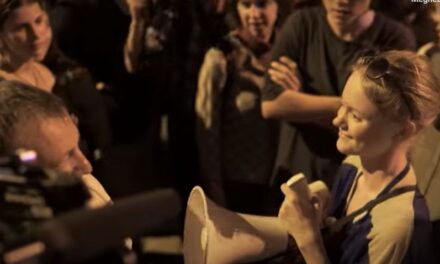According to Fidelio's information, the August 11 performance of Orlai Produkciós Iroda's play Válaszfalak almost drowned in scandal due to the man-kissing scene that broke out on stage, when one of the spectators chose a specific form of expressing his displeasure.
Bess Wohl's Tony Award-nominated drama is about love and its wild and unpredictable nature, unfulfilled plans and unrequited feelings. In this heightened and emotional milieu, a kiss between two male characters takes place. The creators didn't even want to give the scene a different or greater significance, but in the audience... the gesture was given a completely different light. During the performance on August 11, one of the spectators felt that he had to whistle to the audience and the actors to let him know that he was disturbed by what he was seeing on the Mézesvölgyi Szabadtéri stage in Veresegyháza.
Judit Hernádi , András Kern , Viktor Dániel Nagy , Ferenc Pataki and Petra Grisnik appear in the play, among others
The liberals have already begun to howl. One of the actors of the performance, Viktor Dániel Nagy, wrote in a since-deleted post on his social media page: " # Message to the kind audience who disrupts the performance by whistling when they see a man kissing on stage, to not go to the theater. You don't have to, really, it's not worth it below one level. There is no need to bring politics, the rhetoric of blue posters, and stupidity into the audience. Because this is not an expression of opinion, it is a root. Thank you also on behalf of my colleagues. Hungary #2021 #Congratulations #for #propaganda".
Love and respect Viktor Nagy Dániel! You should understand some "little things". I help.
1. If someone doesn't like what they see, they have the right to voice their objection, even with a whistle.
2. The play's poster does not say: "Caution, the performance also contains a homoerotic scene". So the viewer was caught off guard by the not-so-aesthetic manifestation. (We haven't forgotten how pleasing, for example, Comrade Brezhnev and Comrade Kádár's manly kissing was...) If the viewer knows in advance that he can expect something similar, he certainly won't go to the "theatre" (if it's a theater at all).
3. It is not the viewer's fault if a performance is thrust into their image that upsets them. The task of the theater is not provocation, but high-quality entertainment. Therefore, the viewer pays, and you/you live off his/her money.
4. There was a time when displeasure was voiced in other ways, such as throwing rotten tomatoes or scrambled eggs. In today's eyes, this is the root, the whistle is not aggression, but a signal.
5. It mentions propaganda, even though your production contains elements of propaganda, depicting as natural (even if only to this extent) the unnatural relationship between the same sex. Which, of course, is not to be persecuted, but neither is it to be supported.
6. It was not politics, but normality that set foot in the auditorium, indicating that not everything is acceptable, just because some people call the display of deviance "artistic". Just because they say it is, it won't even be close.
Dear artist, I readily admit that it is not a pleasure to whistle at a person. Just as it is awkward for a heterosexual man to kiss someone of the same sex, even on stage. It's a bitter acting task, but okay, that's (also) part of the craft. However, the actor should not judge his audience and should not be offended if his work (or, as in our case, the spirit of the play, the scene) is criticized.
This is also included in the gas.
(Cover image source: YouTube)












